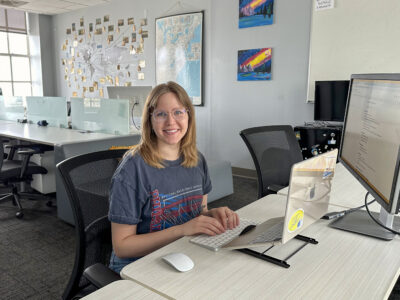Yet another wave of philanthropic money will support new projects in Pittsburgh tech.
Richard King Mellon Foundation announced today that it had invested a total of $3.39 million to winners of its first-ever pitch competition. The prominent Pittsburgh philanthropic organization accepted submissions from for-profit companies with social impact-minded products, technologies or services.
From a total of 108 submissions, 51 judges determined the top three winners and recipients of a total $1 million, along with 13 other startups that were received a total of $2.3 million through the foundation’s social impact investment program. Beyond the funding, all 16 companies awarded investments from the competition will be given access to subsidized office space and other support resources through global startup platform and new Hazelwood Green tenant OneValley and Ascender’s East Liberty coworking space.
In 2021, the RK Mellon Foundation was by far the biggest philanthropic supporter of the Pittsburgh tech industry, playing a key part in supporting major initiatives from the Pittsburgh Robotics Network, Carnegie Mellon University and the University of Pittsburgh as well as smaller businesses like Meta Mesh Wireless Communications and Resilient Coders. This latest commitment to social impact startups demonstrates the pivotal role the foundation has in shaping the future of Pittsburgh tech and innovation, and helps establish pathways of monetary support that other philanthropic org and funding vehicles like venture capital firms might follow.
The foundation’s commitment to Pittsburgh tech entrepreneurship was clear in the extra $2.3 million it invested in companies beyond the top three winners, which the organization did not initially announce it would do. Furthermore, a press release on the winners states that RK Mellon has plans to invest a total of $50 million over the next 10 years in similar social impact-minded for-profit companies.
“We want to support this new generation of compassionate entrepreneurs who are using their talents to change the world,” Foundation Director Sam Reiman said in a statement. “Too often such entrepreneurs are unable to obtain the financial support they need to make their dreams a reality. Pittsburgh’s entrepreneurial and community spirit makes this an ideal city to launch this innovative philanthropic program.” The release emphasized that these investments are not for the purpose of making a profit or seeking a high return but for the advancement of the foundation’s $1.2 billion 10-year strategic plan.
Meet the companies that won the foundation’s first pitch companies:
First place — Fabric Health
Coming in first place for an investment of $500,000 is Philadelphia-based Fabric Health, a startup focused on leveraging the downtime that 32 million Americans spend at the laundromat every week to track social determinants of health. By implementing both staff and technology at laundromats, Fabric’s goal is to intervene and identify health risks in an easy and convenient way.
“This is an interesting idea that addresses an important problem,” one judge said of the company. “The founding team has demonstrated experience and expertise in the use of laundromats as a venue to deliver social and educational services.”
Though currently only operating in Philadelphia, this investment will enable Fabric to bring its services to the Pittsburgh region, too.
Second place — Gus Gear
The competition’s second place winner of a $300,000 investment is Gus Gear, a medical device manufacturer currently focused on creating protective equipment for central line catheters and feeding tubes. The company, which was also part of AlphaLab Health’s inaugural cohort, operates both on a business to customer model through ecommerce and also directly to hospitals and other medical facilities on a business to business model.
“This is very practical solution to a unique clinical problem and the device appears to be very effective from the video of the use case,” a competition judge said of Gus Gear. Founded in 2009, the company is based in Pittsburgh, but has customers across the United States, Canada and the United Kingdom.
Third place — Module
Coming in third place for an investment of $250,000 is Module, a local startup specializing in the building and manufacturing of houses to address the affordable housing shortage. Not only are Module’s homes sustainable, energy efficient, built with certified materials and all electric, but the company website says that they are also 25% to 40% faster to build than traditional affordable housing.
“There is a need for more modular construction capacity in this region and the team here has successfully brought module product online,” one judge said of Module. Most recently, the company demonstrated a build of one of its homes in under two hours in East Liberty.
###
Below is the full list of runners up in the pitch competition, with nine receiving $200,000, three receiving $150,000 and one receiving $100,000 in investment.
- Behaivior
- Boswell
- Brightway Health
- Civic Champs
- Dissolves
- Farm to Flame
- Lumis Corp
- Numoola
- PHRQL
- Rubitection
- Safe Space Technologies
- Toyz Electronics
- Trek Gum
Join the conversation!
Find news, events, jobs and people who share your interests on Technical.ly's open community Slack





